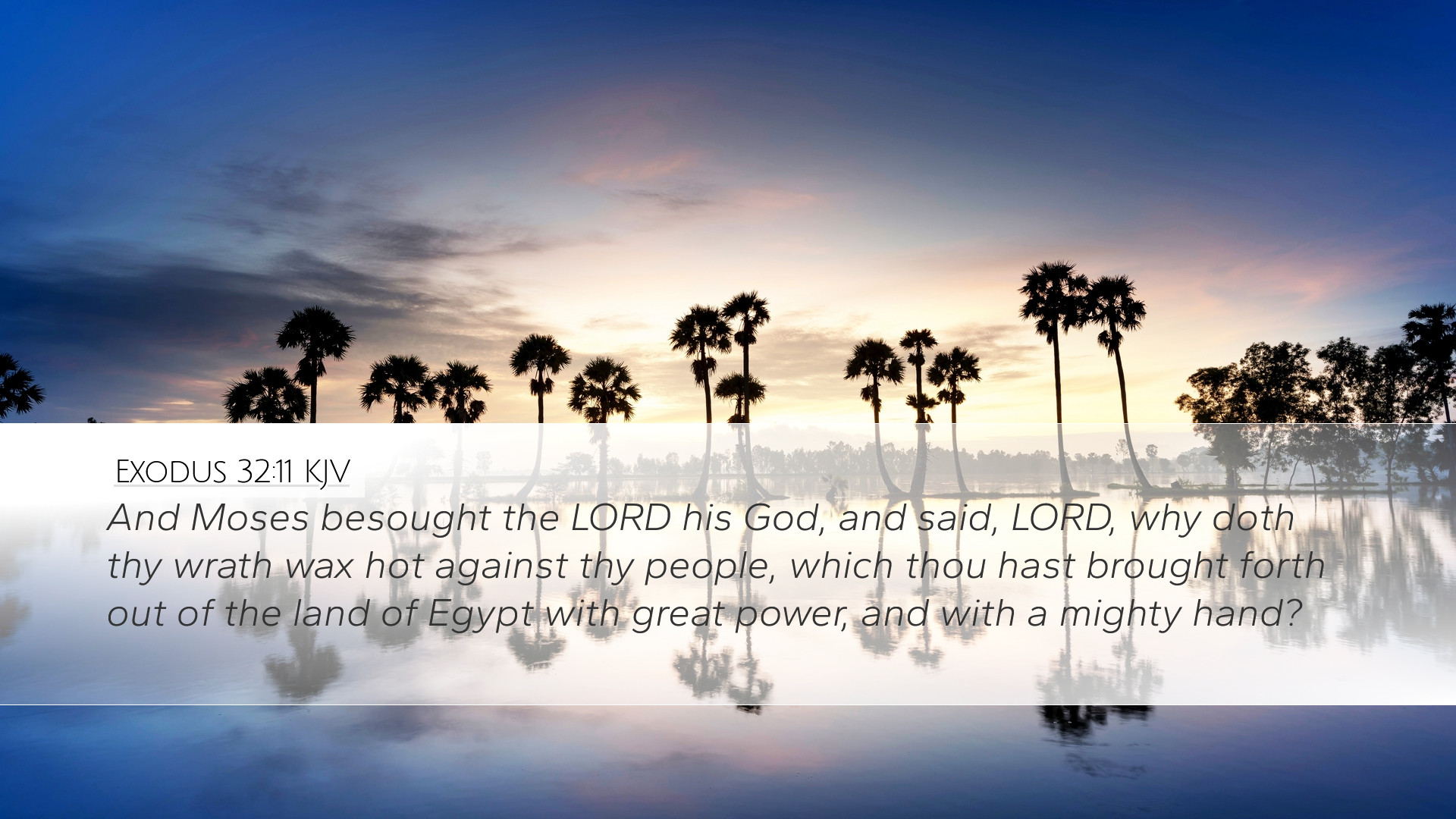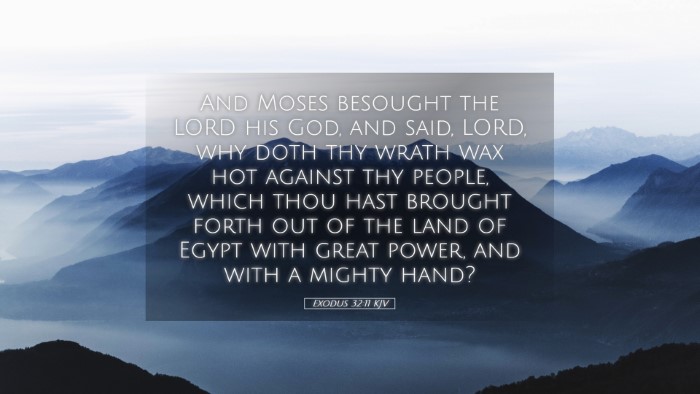Exodus 32:11 Commentary
Verse Reference: Exodus 32:11 - "But Moses sought the favor of the LORD his God. 'O LORD,' he said, 'turn from your fierce anger; relent and do not bring disaster on your people.'
Introduction
The episode encapsulated in Exodus 32 serves as a pivotal moment in Israel's journey. This particular verse highlights Moses' intercession on behalf of the Israelites after their egregious sin of idolatry. Rich in theological implications, this scripture opens up a profound exploration of God's character, leadership, and the power of intercession.
Moses' Role as Intercessor
Moses stands as a mediator, reflecting the archetype of intercessory prayer. The great biblical commentator Matthew Henry elaborates that Moses, in this tense moment, demonstrates remarkable humility and a willingness to bear the burden of the people’s sins. He does not cast them aside but instead pleads with God for their forgiveness, showcasing a heart committed to his people.
- Humility in Leadership: Moses’ intercession exemplifies humility; he does not demand, but rather seeks God’s favor with a tone of earnestness.
- God's Response to Intercession: Albert Barnes notes that this act of intercession can lead to a reconsideration of divine judgment, indicating that God is responsive to the prayers of the righteous.
The Character of God
In approaching God with his appeal, Moses acknowledges God’s fierce anger yet appeals to God’s merciful nature. Adam Clarke emphasizes that understanding God’s character is crucial; God's wrath is often tempered by His compassion. This duality invites reflections on God's justice and mercy.
- The Nature of Divine Justice: God is righteous in His anger towards sin; however, His readiness to forgive reveals a deeper ministry of love.
- The Power of Relenting: The notion that God might 'relent' from disaster points to His dynamic relationship with humanity; it affirms the capacity for repentance and change.
Implications for Leaders
For pastors and spiritual leaders today, Moses’ example provides a model for intercession on behalf of others. Henry draws attention to the necessity of earnest and fervent prayer in a leader’s life, especially in times of crisis. Leaders are encouraged to advocate for their congregations with God, reflecting both commitment and care.
- Pleading for Others: Just as Moses pleaded for the Israelites, so too can leaders lift up their congregations in prayer, recognizing their collective weaknesses and seeking restoration.
- Emotional Investment: The depth of emotion seen in Moses' plea underscores the need for leaders to be emotionally attuned to their communities.
Theological Reflections
This scripture invites theological inquiry about the interplay between divine sovereignty and human intercession. Barnes explains that while God’s will is ultimately sovereign, human actions and prayers have a significant role in the unfolding of God’s plans. This tension between God's immutability and His willingness to hear human cries can lead to fruitful theological discussions.
Challenges of Understanding Divine Will
Given the complexity of God’s relationship with humanity, the question arises: how does human prayer affect divine decisions? Clarke suggests that while it may be hard to fully grasp, this mutual relationship is a fundamental element of faith that highlights the active involvement of both parties.
Applications for Today
For contemporary believers, the verse serves as a profound reminder of the importance of intercession. Every individual is called to recognize their standing before God both for themselves and for others. Here are some practical applications:
- Daily Intercession: Regularly pray not just for personal needs but also intercede for those around you, as our actions can help activate God's mercy.
- Fostering Community: Engage in community prayer gatherings, fostering a culture of collective supplication that can lead to healing and guidance.
Conclusion
Exodus 32:11 encapsulates a moment filled with tension, desperation, and ultimately, hope. Moses’ plea serves as an enduring testament to the power of intercession and the mercy of God. As leaders, students, and scholars, we are called not only to learn from this text but also to embody the fervent spirit of prayer and advocacy that it promotes.


